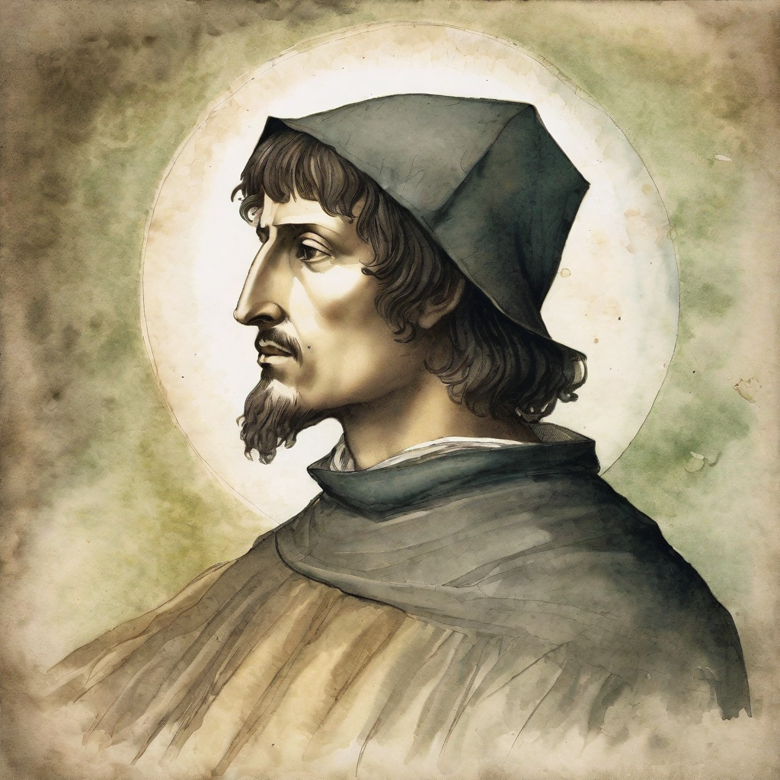Giordano Bruno (1548-1600) was an Italian philosopher, mathematician, poet, and astronomer who is renowned for his extensive writings and controversial ideas. He made significant contributions to various fields, including cosmology, philosophy, and the art of memory. Bruno's works challenged established religious and philosophical doctrines of his time and had a profound impact on the development of modern thought.
"On the Infinite Universe and Worlds"
(De l'infinito universo et mondi):
In this work, published in 1584, Bruno argues for the existence of an infinite universe with an infinite number of inhabited worlds. He rejected the geocentric model of the universe and proposed a heliocentric system, asserting that the Earth orbits the Sun alongside other celestial bodies. Bruno's ideas anticipated the concept of an infinite and diverse cosmos, which was revolutionary for the time.
"The Ash Wednesday Supper" (La cena de le ceneri):
Published in 1584, "The Ash Wednesday Supper" explores a wide range of topics, including memory, knowledge, and the nature of the soul. Bruno develops his theory of mnemonics, or the art of memory, which he believed could enhance human intellectual capabilities and facilitate the acquisition of knowledge. He also touches on theological and philosophical themes, challenging traditional religious beliefs.
"On Cause, Principle, and Unity" (De la causa, principio, et uno):In this work, published in 1584, Bruno delves into metaphysical and cosmological concepts. He discusses the nature of causality, the relationship between matter and form, and the concept of unity as the underlying principle of the universe. Bruno's ideas in this work influenced later philosophers, including Baruch Spinoza and Gottfried Leibniz.
"The Heroic Frenzies" (De gli eroici furori):Published in 1585, "The Heroic Frenzies" explores Bruno's mystical and philosophical ideas, drawing on the tradition of Neoplatonism. He discusses the nature of divine love, the ecstatic union with the divine, and the pursuit of spiritual enlightenment. Bruno's mystical writings often blend elements of philosophy, poetry, and religious mysticism.
"The Expulsion of the Triumphant Beast" (Spaccio de la bestia trionfante):This work, published in 1584, is considered one of Bruno's most controversial and influential writings. It critiques religious dogmas, particularly the narrow-mindedness of the Catholic Church, and advocates for intellectual freedom and the pursuit of knowledge. Bruno uses allegorical characters and symbolic language to convey his ideas.
It is important to note that Bruno's ideas and writings were highly controversial during his time. His rejection of traditional religious doctrines and his embrace of pantheism and esotericism led to his condemnation by the Catholic Church.
In 1600, he was charged with heresy and burned at the stake. Despite his tragic fate, Bruno's works continue to inspire and influence thinkers in various fields, contributing to the advancement of scientific, philosophical, and cultural thought.

Comments
Post a Comment